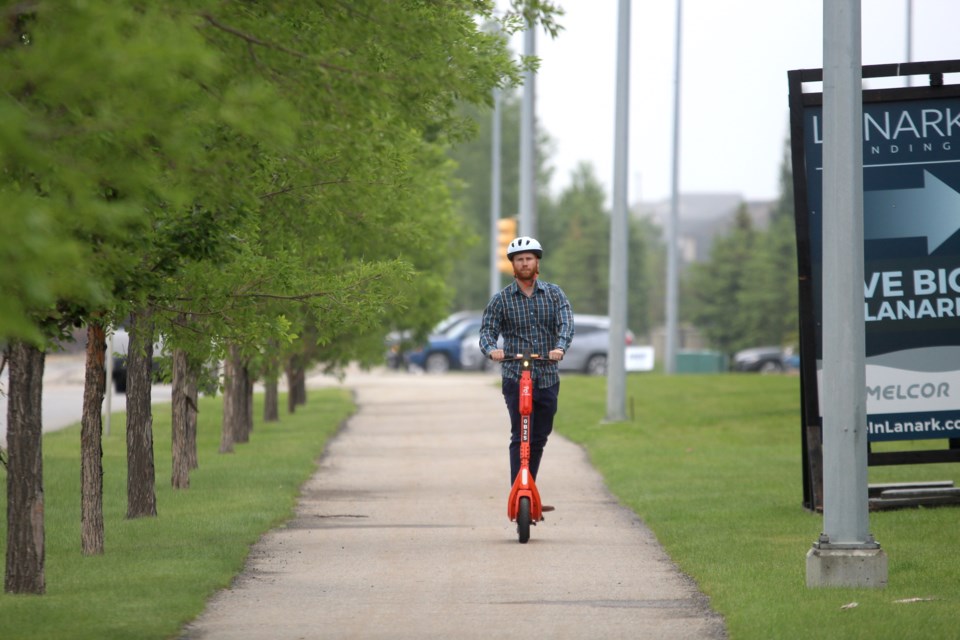As electronic scooters whip around the region, the Waterloo Regional Police Service is reminding residents to make sure they understand the rules before hitting the road.
E-scooters, or kick scooters, can be classified as vehicles under the Criminal Code of Canada. This means traffic laws, including impaired operation and other offences apply to their use.
Between Jan. 1 and Aug. 28, one e-scooter driver and one e-bike driver have been charged with impaired driving by the WRPS.
In the one incident, on Aug. 19 at approximately 11:30 p.m., a driver of an e-scooter lost control and struck a traffic barrier pole while travelling on King Street in Kitchener. A 20-year-old Kitchener female was arrested and charged with operation while impaired - alcohol and drugs and operation while impaired - blood alcohol concentration. The female was scheduled to appear in court this week.
Also last month, a 52-year-old Guelph man was found at the side of Victoria Road South with life-threatening head injuries. While the details around what happened aren't clear, he was found next to an e-scooter, emphasizing the importance of safe operation.
Since Neuron Mobility rolled out 500 e-scooters and 500 e-bikes in the region back in April, over 225,000 kilometres have been travelled. The average trip has been 2.5 kms and 17 minutes long.
It's important to note that none of the incidents were confirmed to have happened on Neuron vehicles.
Neuron vehicles also come with a variety of safety features to ensure riders are protected from potential injuries. All scooters are equipped with helmets and users are incentivized to wear them. When opening the app and unlocking a scooter, riders can receive a $.50 credit if they take a selfie wearing the helmet.
The company has a series of safety videos riders can watch to ensure they're safely using the vehicles and penalties may be imposed for dangerous riding and parking violations, including account suspension.
According to Julie Belanger, the principal planner for transit for the Region of Waterloo, over 6,500 trips have been made in Cambridge from April to August and she's hoping the numbers increase as familiarity with the program becomes more well known.
“We hope to see uptake continue to grow as the program continues,” Belanger told CambridgeToday last month.
“People choose to use shared e-bike and e-scooter services for a faster and more flexible way to travel, for fun and to save money. There are also broader environmental benefits, such as reducing car trips and less need for parking.”
E-scooters are also helping achieve the region's active transportation goals.
Neuron’s data indicates, on average, 45 per cent of all trips on one of its e-scooters or bikes in Canada replaces a car journey, which reduces congestion and improves air quality.
While there’s no immediate plans to expand access in Cambridge despite new routes being announced recently in Kitchener and Waterloo, Belanger says data and feedback will continue to be collected to improve the program in the city.
“Neuron and the region will be conducting surveys to get input on the first year of service,” she said.
“We hope to get a better understanding of how to improve the program this winter so it will be even more successful in future years. We’re working towards having the program be available to more people in Waterloo Region by expanding the service area and looking for ways to make it more accessible and equitable."
For more information on rules about e-scooters visit ontario.ca.



